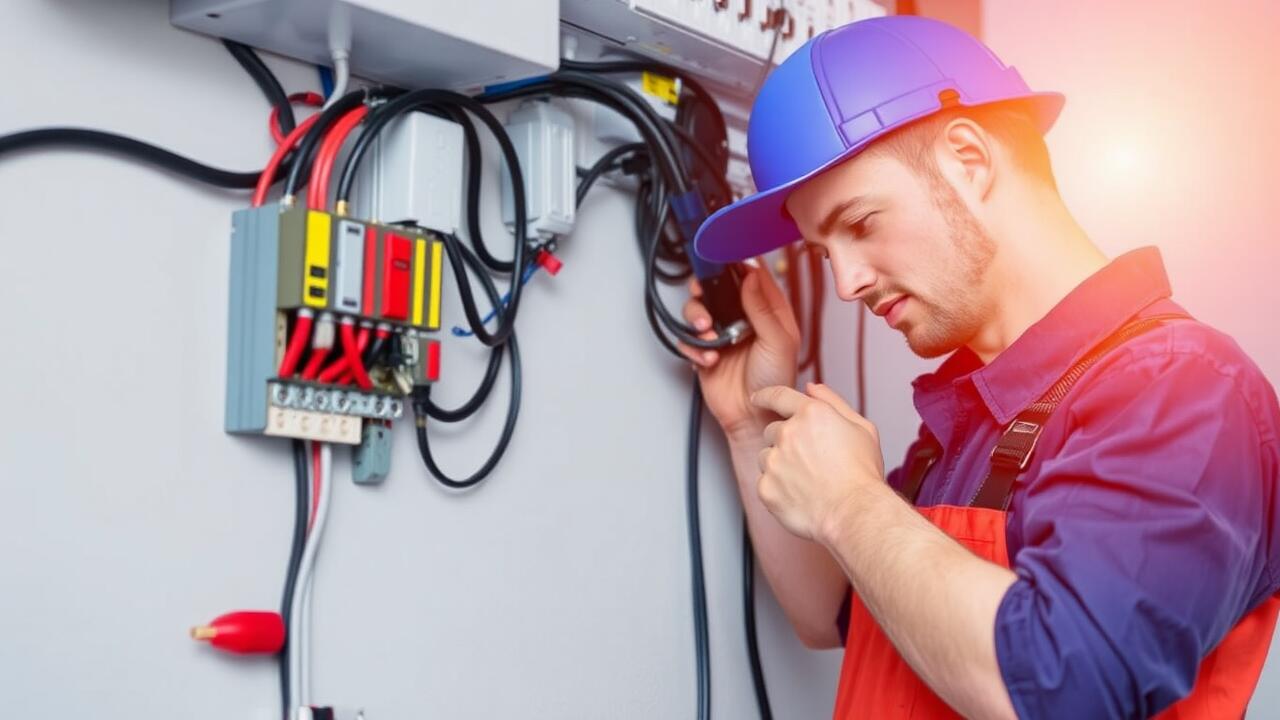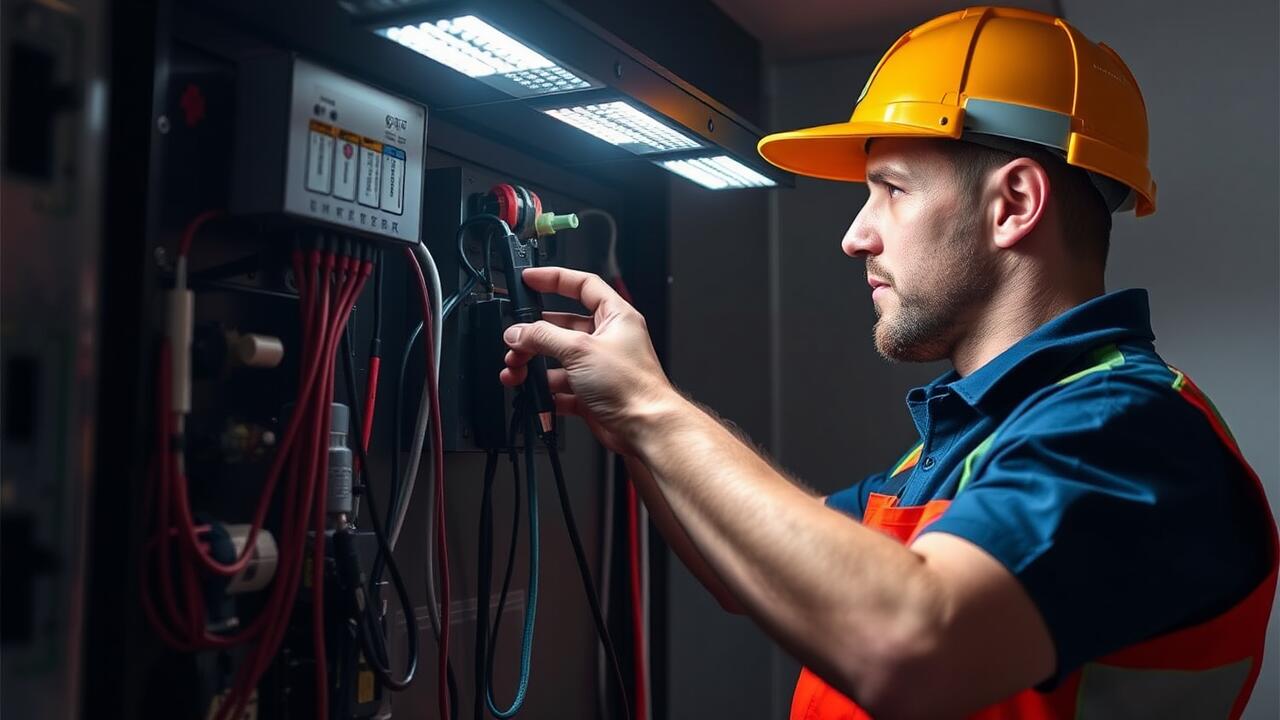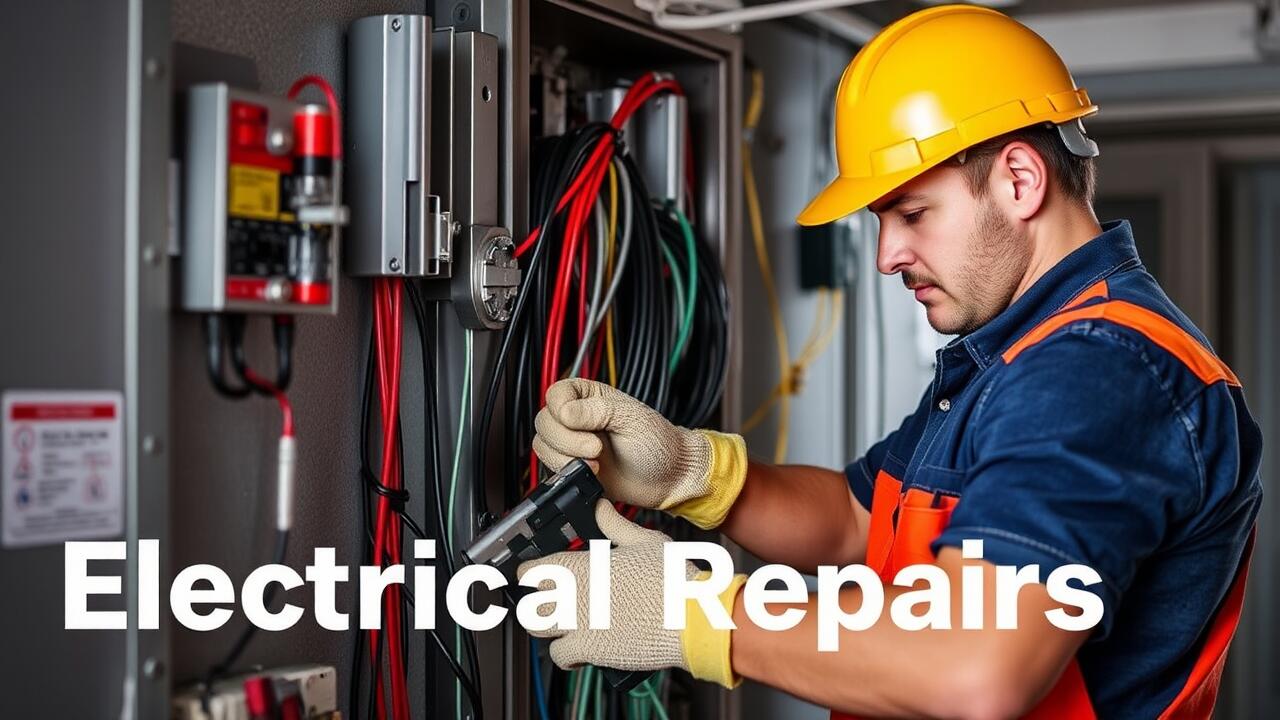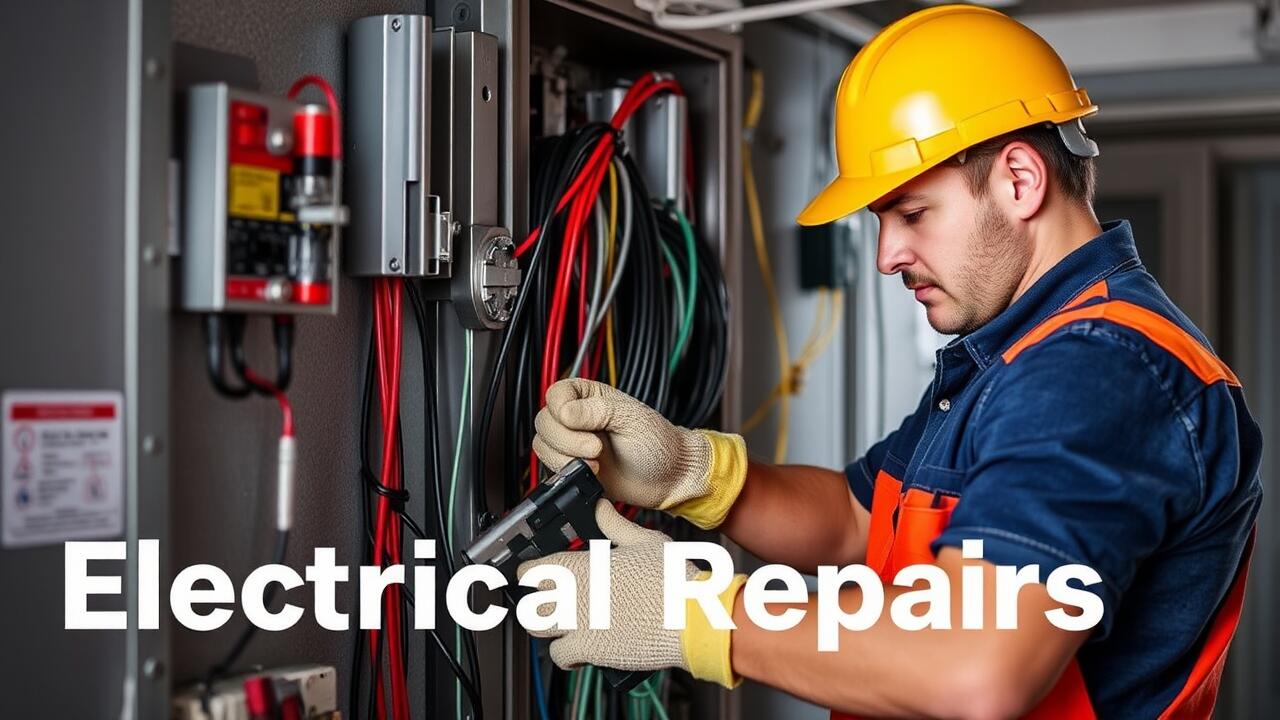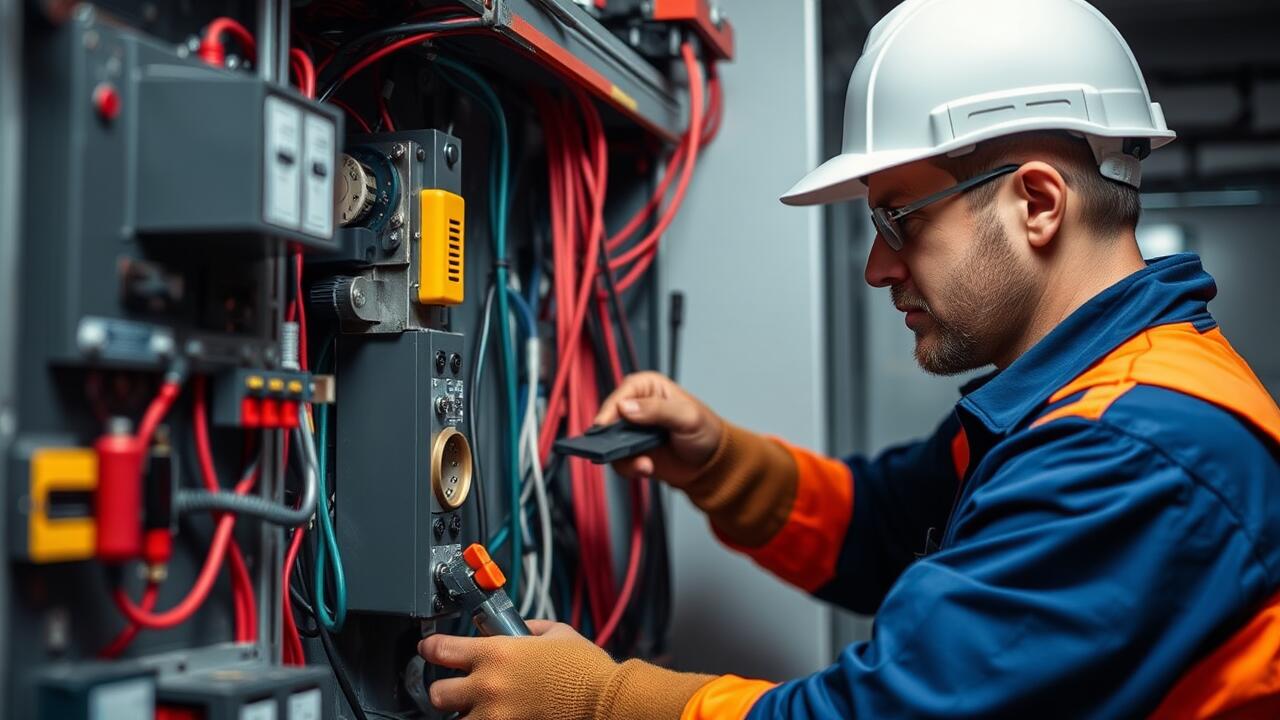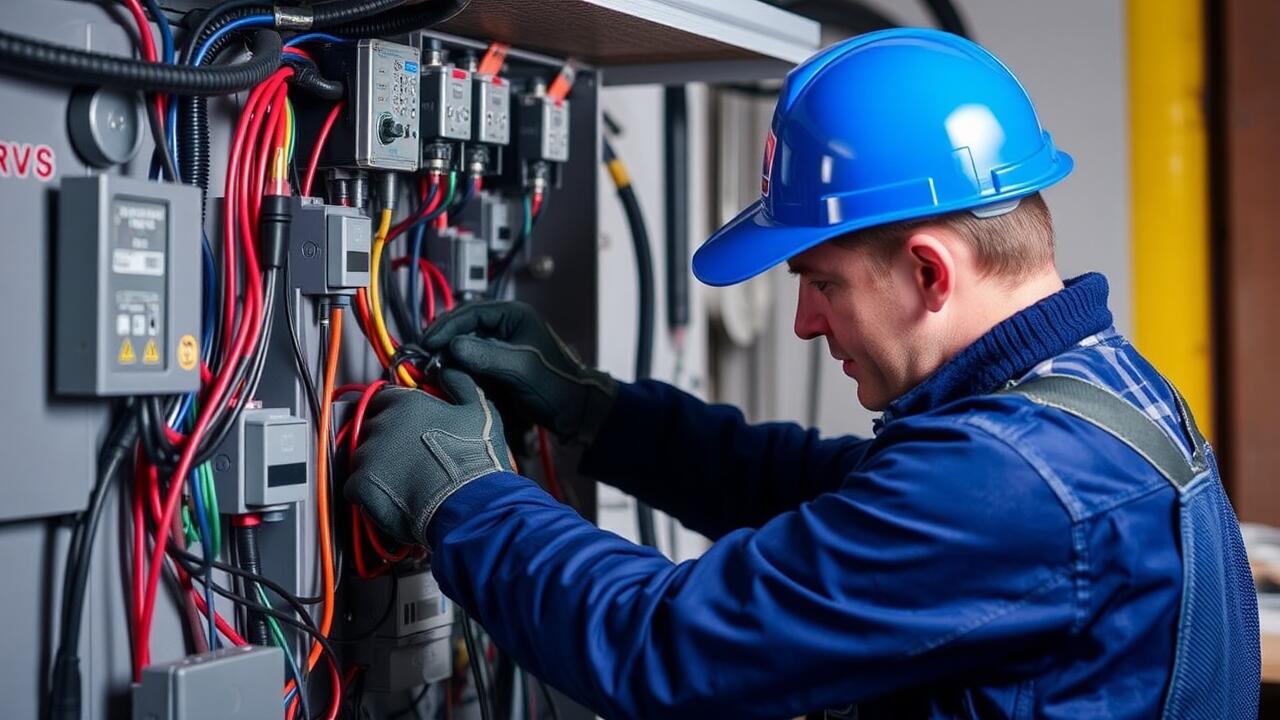
Common Electrical Installation Projects
Electrical installation encompasses a wide range of projects that homeowners and businesses may undertake. Common tasks include installing new wiring, setting up circuit breakers, and adding outlets or fixtures. Many people also consider energy-efficient lighting options or upgrading existing systems to accommodate new appliances. Each project varies in complexity and can significantly enhance the functionality of a space.
When it comes to electrical repairs, residents often seek professional help. Electrical Repairs Alief, Houston, provide essential services ensuring that installations adhere to safety standards. Proper installation not only prevents malfunctions but also improves overall energy efficiency. Engaging qualified technicians helps guarantee that the work complies with local codes and regulations.
Wiring New Homes and Renovating Older Properties
Wiring new homes presents a unique opportunity to implement modern electrical systems that prioritize efficiency and safety. Builders can design layouts that accommodate current technological demands, integrating smart home devices and energy-efficient fixtures. This proactive approach ensures that electrical outlets, lighting, and circuit configurations are both functional and suitable for a homeowner's lifestyle. For those involved in renovations of older properties, understanding the building’s original electrical design is crucial. Upgrading the wiring can help meet contemporary safety standards while enhancing overall performance.
Electrical Repairs Greenspoint, Houston, emphasize the importance of a detailed assessment during renovations to update outdated wiring. When tackling older homes, electricians may also discover hidden challenges like knob-and-tube wiring or insufficient grounding, which require careful attention. Ensuring that the electrical system can handle today’s power demands is key to avoiding safety hazards and improving energy efficiency. Adapting these properties to contain modern electrical solutions not only boosts their value but also enhances occupant comfort.
Navigating Electrical Codes and Regulations
Understanding electrical codes and regulations is essential for any electrical installation project. These codes are established to ensure safety, function, and efficiency in electrical systems. Each locality may enforce its regulations based on national standards. It is crucial for homeowners and contractors to familiarize themselves with these codes before beginning any work. Not adhering to these guidelines can lead to unsafe installations and potentially costly fines. This is especially important in regions like Greenspoint, Houston, where regulations may vary significantly from neighboring areas.
Compliance with electrical codes not only enhances safety but also ensures the functionality of installations. Properly executed electrical work can prevent hazards such as short circuits, fires, and electrocution. Local authorities typically require inspections to verify that installations meet the required standards. In Greenspoint, Houston, professional services often help navigate these regulations, ensuring that each aspect of the electrical installation adheres to established codes. Engaging knowledgeable electricians can significantly streamline the process and can contribute to a safer, more reliable electrical system in any property.
Importance of Compliance for Safety and Functionality
Compliance with electrical codes is critical for ensuring both safety and functionality in any electrical installation. Adhering to established regulations helps prevent dangerous situations such as electrical fires and shocks. Updated codes reflect current technology and safety standards, which significantly reduce risks associated with outdated wiring or improper installations. Homeowners and contractors benefit from understanding these guidelines to create safe environments for everyone.
Electrical Repairs Greenspoint, Houston, highlights the importance of following local codes and regulations during any installation or repair process. Properly executed installations not only enhance the efficiency of electrical systems but also extend the lifespan of the components used. Maintaining compliance protects the property’s value and ensures that all work is up to standard, minimizing future repair costs or legal issues related to non-compliance.
The Role of Permits in Electrical Work
Permits play a crucial role in electrical work, ensuring that all installations comply with local codes and safety standards. When undertaking any significant electrical project, securing the appropriate permits is often a legal requirement. This process helps prevent unauthorized work and ensures that qualified professionals are handling potentially dangerous tasks. For homeowners or contractors dealing with complex systems, permits provide a necessary safeguard, promoting accountability and verification throughout the project.
In areas like Electrical Repairs Kingwood, Houston, obtaining a permit not only adheres to regulations but also offers peace of mind. Inspections conducted by local authorities help catch any potential hazards early, allowing for corrections before they can lead to problems. Engaging with the permitting process also supports informed decision-making regarding project scope and compliance, making it an essential step for responsible electrical installations.
Understanding the Permit Application Process
Securing the necessary permits for any electrical installation or repair is a critical step for homeowners and contractors alike. The process usually begins with submitting an application to the local building department, detailing the scope of work intended. This application may require documentation such as plans, diagrams, and even specifications from licensed electricians. Adhering to local regulations ensures that the work not only meets safety standards but also aligns with community codes.
In areas like Electrical Repairs Spring Branch West, Houston, understanding local permit requirements can help streamline the installation process. Permit guidelines may differ based on the scale of the project and specific local regulations. Ignoring these steps can lead to delays, fines, or complications in future renovations. Homeowners should always ensure that their electrical projects comply with these necessary legalities for a smooth, safe, and efficient outcome.
FAQS
What types of projects can I undertake with electrical installation?
You can work on various projects such as wiring new homes, renovating older properties, installing lighting fixtures, upgrading electrical panels, and setting up smart home systems.
Why is it important to comply with electrical codes and regulations?
Compliance with electrical codes and regulations is crucial for ensuring safety, preventing hazards such as electrical fires, and ensuring that the electrical installation functions properly and efficiently.
How can I navigate the permit application process for electrical work?
To navigate the permit application process, start by checking your local building department's requirements, gathering necessary documentation, submitting your application, and ensuring that your work complies with relevant electrical codes.
Do I need a permit for all electrical installation projects?
Not all projects require a permit, but significant work such as new wiring installations, major renovations, or significant upgrades typically do. It's best to consult local regulations to determine if your specific project requires a permit.
Can I perform electrical installations myself, or should I hire a professional?
While some minor electrical tasks can be done safely by DIY enthusiasts, it's generally recommended to hire a licensed electrician for larger projects to ensure safety, compliance with codes, and high-quality work.
